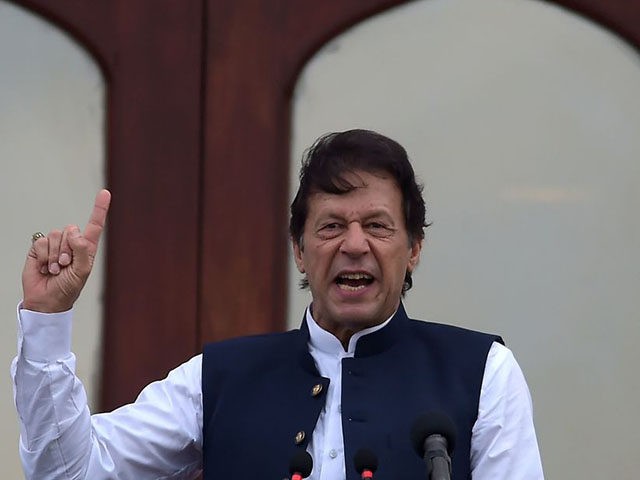Pakistan approved a law Tuesday allowing for the chemical castration of sex offenders, in part a response to public outcry over the recent gang rape of a mother on a motorway.
The legislation, signed into law by President Arif Alvi on Tuesday, will also allow for the expedition of rape cases through the courts, the creation of a national sex offenders registry, and anonymity for rape victims. The laws also mean repeat sex offenders will be subject to chemical castration.
Chemical castration is the practice of injecting or otherwise forcing a subject to ingest drugs that reduce or completely eliminate their testosterone levels, presumably to eliminate their libidos and, thus, desire to engage in rape. There is no one standard drug used in chemical castration; most of those used around the world are longstanding drugs also used to treat acne, as birth control, or for other reasons.
Studies have not definitively concluded chemical castration effectively results in lower rates of rape in places where it is implemented. It is also unclear what long-term effects subjects face if living with little or no testosterone, the male hormone believed to be responsible for libido.
Pakistan has not yet made clear if those sentenced to chemical castration will have to take medications to eliminate their testosterone for any fixed period of time or for their entire lives.
Chemical castration is not traditional castration and requires no mutilation of genitalia or any other body part.
“The provision of the chemical castration of repeat as well as first-time sex offenders … was added in the Anti-Rape Ordinance 2020,” the president’s office confirmed Wednesday.
Lawmakers drafted the bill in part to respond to widespread demonstrations erupting in September after a mother was raped on a motorway in front of her children when her car broke down outside of Lahore. A similar incident occurred last month in which criminals kidnapped and raped a mother and daughter over the course of several days in the southern Sindh province.
Islamist Prime Minister Imran Khan championed the legislation, though he had stated prior to its passing that he would like to see sex offenders publicly hanged. Khan noted that drafting capital punishment laws would likely damage trade relations with Europe and other countries opposed to the death penalty.
“Rapists should be given exemplary punishments,” he said back in September. “In my opinion, they should be hanged at the chowk [public square].”
“Unfortunately, when we had the discussion, [we were] told it would not be internationally acceptable. They said the GSP-Plus trade status given to us by the European Union will be affected,” he continued. “We need fresh legislation to permanently sterilize such [criminals]. World history tells when you increase fahashi (vulgarity) in the society, two things happen: sex crimes increase and the family system breaks down.”
Human rights activist organizations also oppose chemical castration. Following the passage of the Pakistani law this week, Amnesty International denounced it as “cruel and inhuman.”
“Forced chemical castrations would violate Pakistan’s international and constitutional obligations to prohibit torture and other cruel, inhuman or degrading treatment,” said Amnesty’s South Asia Campaigner, Rimmel Mohydin.
“Punishments like this will do nothing to fix a flawed criminal justice system,” he continued. “Instead of trying to deflect attention, the authorities should focus on the crucial work of reforms that will address the root causes of sexual violence and give survivors the justice they deserve and the protection they need.”
Follow Ben Kew on Parler, Facebook, or Twitter. You can email him at bkew@breitbart.com.

COMMENTS
Please let us know if you're having issues with commenting.